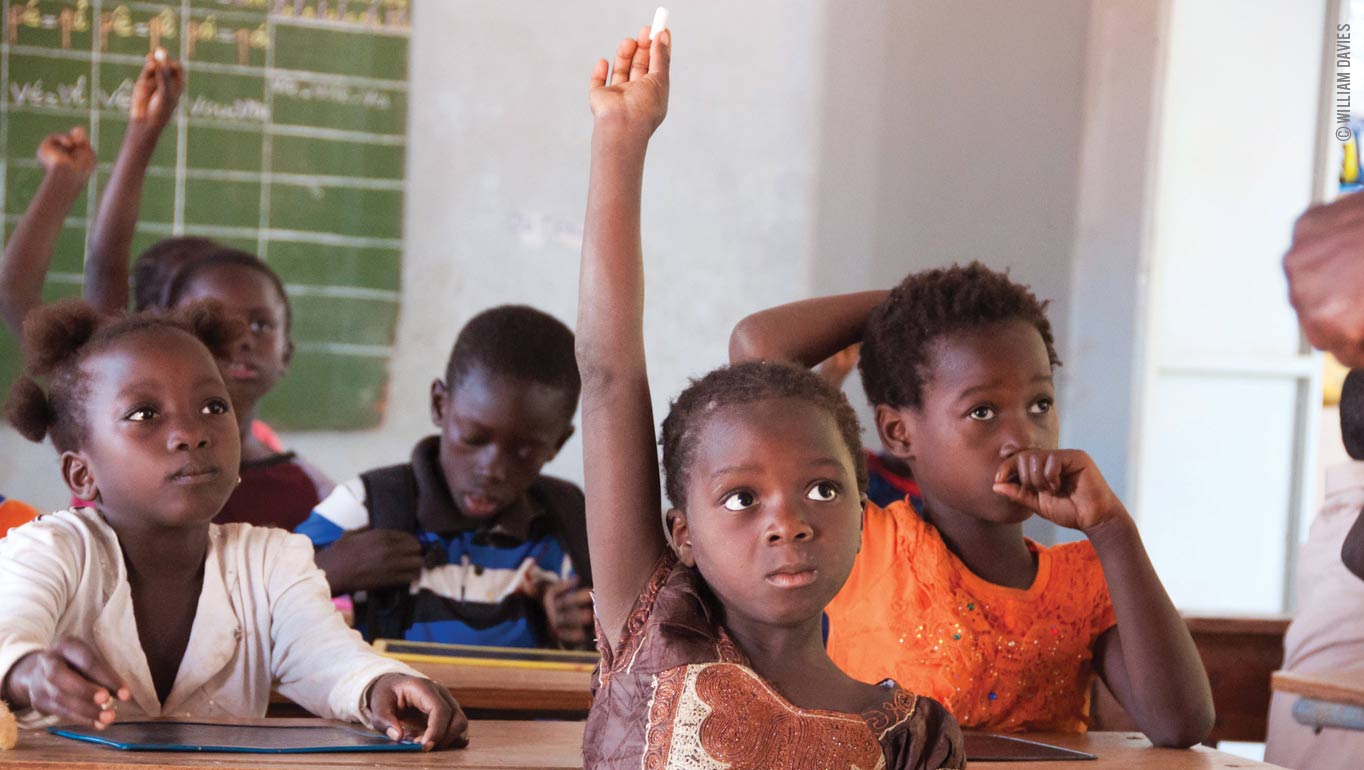In September 2015, the UN General Assembly adopted the 2030 Agenda for Sustainable Development, through which Heads of State and Government committed to reaching 17 Sustainable Development Goals by 2030, of which SDG 4 states: “Ensure inclusive and equitable quality education and promote lifelong learning opportunities for all.” As 64 million children of primary school age are still out of school, and 56% of that age group do not reach the minimum proficiency level in reading, achieving SDG 4 will require the concerted efforts of all education stakeholders. (Global Education Monitoring Report, 2019).
Indeed, the Education 2030 Framework for Action acknowledged that “the ambitious education goal cannot be achieved by governments alone. They will need the support of all stakeholders, including non-state actors.” (Education 2030 Framework for Action). This article explores the particular contribution that NGOs can make to SDG 4, based on the experience of Aide et Action, an NGO for development through education founded in 1981 to ensure access to quality education for the most vulnerable and marginalized populations: in particular children, girls, and women in 19 countries.
A missing link between institutions and communities?
At the local level, NGOs often play a key role in bridging the gap between schools and marginalized families who do not always have the necessary social skills to face administrative procedures for school admission or to claim their rights. Accompanying families towards effective access to education is a steady element in Aide et Action’s interventions, from our project with disabled girls in poor communities in India, to our work with children from allophone families living in slums in the suburbs of Paris.
On another level, non-formal education initiatives can be a lever for reaching out to those most alienated from the school system. In Niger, in the context of security crisis, Aide et Action has set up 40 non-formal bridging classes. In one or two years, they have allowed out-of-school children from 9 to 14 years old to acquire basic skills, and have prepared them to eventually integrate in regular schools and pursue their education within the formal system.
A source of innovation in education
In certain fields, NGOs have been pioneers in developing solutions to educational issues. This was notably the case in mother tongue education through the Écoles Communautaires de Base (basic community schools) in West Africa in the 1990s. These non-formal, community-led schools targeted out-of-school children and used local languages as the primary medium of instruction, progressively transitioning to French at a later stage. This model proved successful and was later taken over by a number of ministries of education.
Today, the expertise of civil society organizations might be key to reach SDG 4, especially in terms of fostering community participation in schools, ensuring inclusion of girls, persons with disabilities and ethnic minorities, or developing education to sustainable development, peace and global citizenship. The main challenge is then to develop synergies with public institutions and schools.
Between 2015 and 2020, in the Casamance region of Senegal, Aide et Action and the local education authorities (Inspection d’Académie) have partnered to implement PAEBCA, a project aimed at improving basic education in the region. It articulated government-led activities – including building 30 new schools and training 1000 teachers – and NGO-led activities such as fostering community participation in the management committees of the newly built schools, developing citizenship, and health education activities in schools. Furthermore, NGOs and public authorities need to learn to build such partnerships to make sure we develop coherent actions towards SDG 4.
Carrying the voice of civil society in the global education agenda
Last but not least, NGOs have a crucial role to play in informing the public on the right to education, alerting about educational issues, and monitoring political and financial commitments to SDG 4. Such responsibility is crucial, since an additional US$39 billion is needed each year to achieve universal education in low and lower-middle income countries by 2030.
This role is notably carried out by the Global Campaign for Education (GCE), a movement comprised of civil society organizations that aims to coordinate voices in relation to the global education agenda. The GCE is represented in almost 100 countries, where its national coalitions prompt governments to fulfil their commitments towards SDG 4. More broadly, NGOs should act as catalysts to mobilize citizens and carry their voices at the local, national, and international levels.
The task of achieving education for all is such that a ‘Lone Ranger’ approach is doomed to failure. Governments, NGOs and other stakeholders should develop mechanisms to further coordinate their actions, and to enhance civil society participation in policy planning and monitoring. Particular attention should be paid to the funding and capacity building of local NGOs so they can fully participate in the process. Joining forces and working together is, therefore, an emergency action, given that there are less than ten years left to achieve SDG 4.



